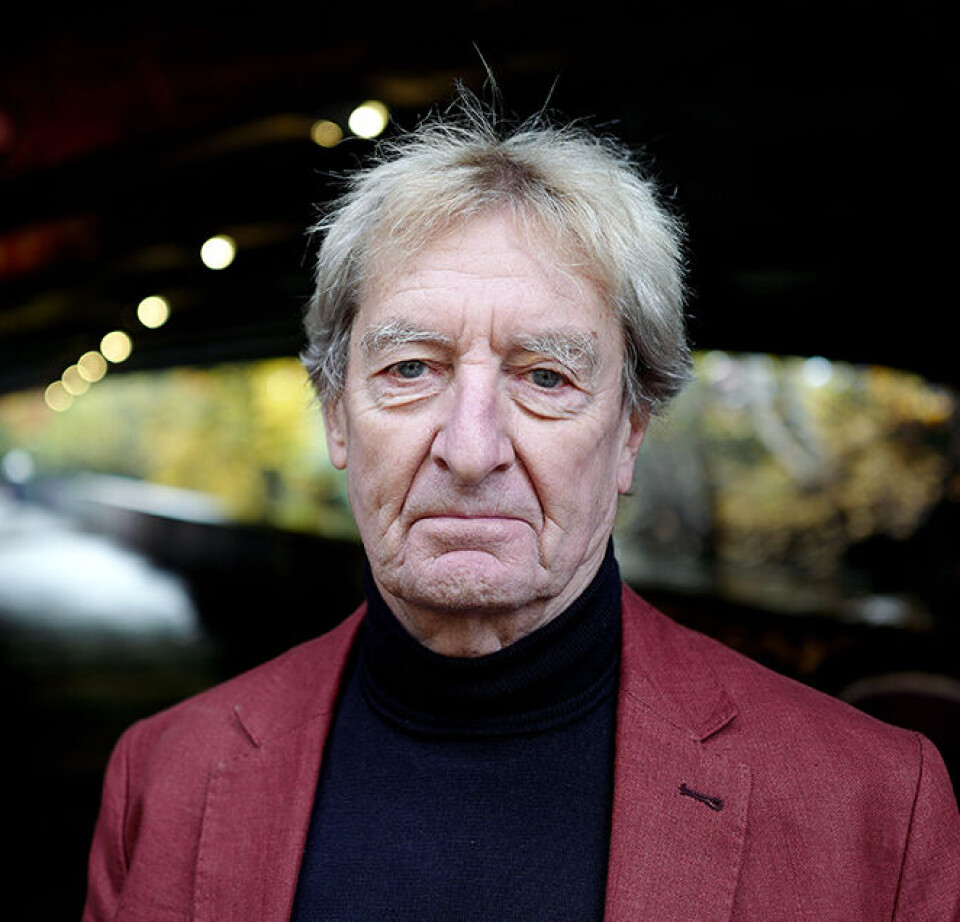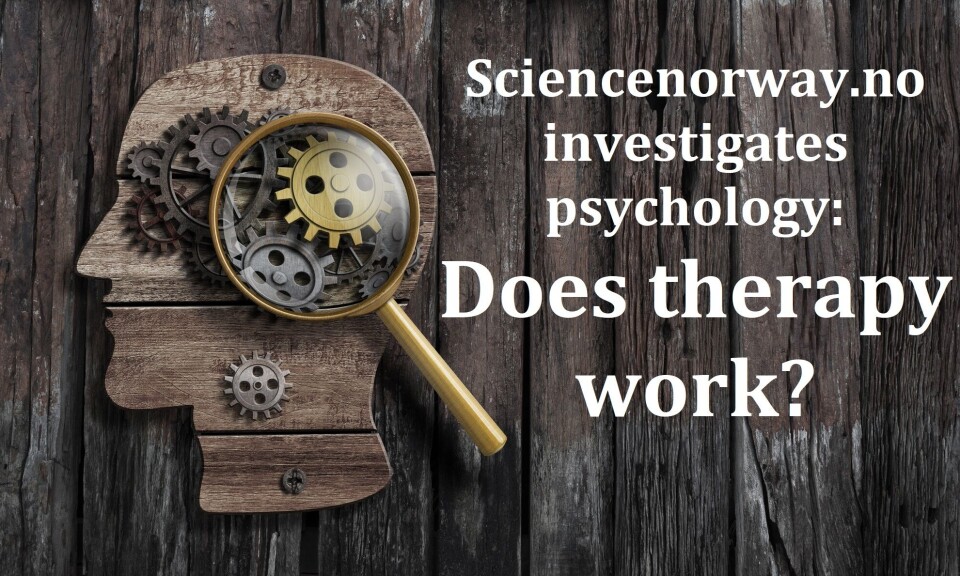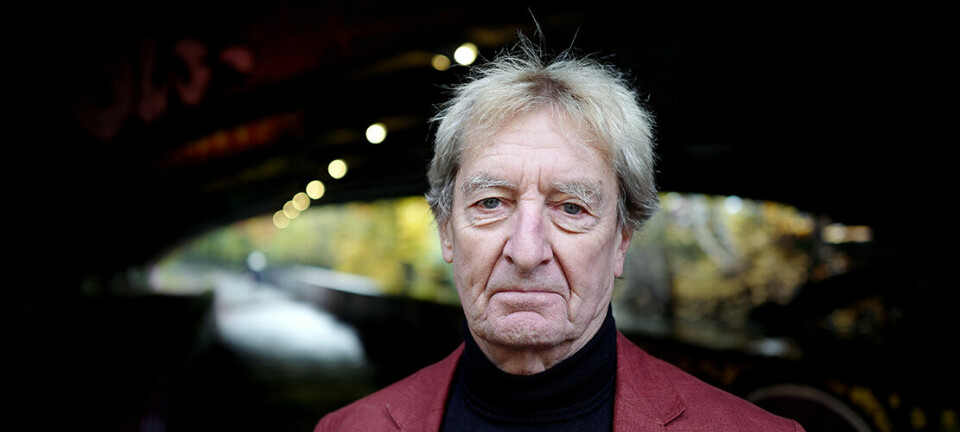
Do we get any better by seeing a psychologist?
Some researchers say yes, therapy works.
That’s not true, according to others.
Why do researchers disagree so much about how well psychotherapy works?
We have to give people realistic expectations of the kind of help a psychologist can offer, says researcher.
On 28 September 2022, NRK, the Norwegian Broadcasting Corporation aired a programme that sent shock waves into the offices of the country's therapists.
Presenter Andreas Wahl considered the effect of psychotherapy – treatment where conversations with a psychologist are supposed to improve mental health – in an episode of his tv-programme Folkeopplysningen (Public information).
The conclusion was that the treatment seemed rather ineffective. Only one in seven patients who go to therapy is actually helped by it.
This triggered a flurry of reactions from psychologists and researchers. Several claimed that, on the contrary, the research shows that psychotherapy has very positive effects.
How could they come to such different conclusions?
A deeper dive into the matter shows that the disagreement runs deep in professional circles.
Better chances of recovery with psychotherapy
The topic is complicated.
However, based on summaries of research and conversations with many Norwegian professionals, we can state one general conclusion to begin with:
Psychotherapy works. It is widely agreed that people generally have a greater chance of recovering or getting better from a mental illness if they receive psychotherapy. It is therefore a good idea to seek help if you are struggling with your mental health, and there is no reason to stop a treatment that you feel you benefit from.
The question, however, is how big this treatment effect is. How many patients improve, and how many make a full recovery?
That is what professionals don't agree on at all.

Joar Øveraas Halvorsen, an associate professor and clinical psychologist at NTNU, was one of the researchers who spoke in the Folkeopplysningen episode.
He believes the impact is less than what is often claimed and that people need a reality check.
“I regard it as essential to give people with mental health problems realistic information about what they can expect, so that they can make informed choices,” says Halvorsen.
He believes the overall research available indicates that psychotherapy generally has a small to moderate effect. Summaries of the research have stated that the standardized effect size is between 0.3 and 0.4.
Standardized effect size is a measurement researchers often use to state how much effect a treatment has. If a treatment has an effect size of 0.2, it is considered to have a small effect. An effect size of 0.5 is considered a medium effect, while a figure above 0.8 is considered a large effect.
An effect of 0.3 is thus not particularly large.
Few patients experience positive effects
Researchers can also describe the effect by stating how many patients need to receive treatment in order for one person to experience a clear impact. This number is called NNT, or the “Number-Needed-to-Treat.”
Halvorsen believes research shows that the NNT for psychotherapy for depression is seven. In other words: Only one in seven patients who go to therapy will actually improve significantly from the treatment.
A similar picture is presented by Arne Holte, a professor emeritus in health psychology and former assistant director of the Norwegian Institute of Public Health.
Minority of patients experienced a positive effect
Holte recently prepared a report for the organization Mental helse (Mental health), in which he writes that about 40 per cent of patients had a positive treatment effect after two months in psychotherapy. This treatment effect also applied to 15 per cent of the patients who did not receive talk therapy.

Just over 30 per cent of the patients who received treatment recovered, compared to around 10 per cent of patients who recovered without psychotherapy treatment. The mental health of five per cent of the participants worsened.
Holte believes that the matter is complicated, but that the modest effect of psychotherapy might perhaps be part of the explanation for a paradox: Despite the fact that many more people are receiving treatment for mental disorders, the incidence of these ailments is not decreasing.
- Read more about this: Society is spending more and more money on mental health. Why aren't we getting any better?
Psychotherapy has a great impact
Both Holte and Halvorsen have derived their figures from research. But not everyone agrees that this is what the research shows.
Ole André Solbakken, a professor of psychology at the University of Oslo, is one of those who have a different answer.

“Throughout the entire history of therapy, across therapists, diagnostic criteria, directions of therapy and thousands upon thousands of patients, the effect is around 0.8 on average,” he says.
In other words, therapy has a big impact.
“The best studies we have indicate that if you manage to deliver psychotherapy within the best possible framework, with good guidance from the therapist, systematic follow-up of the patients, and a selection process so that we provide treatment to the patients who actually want to receive treatment – then we mostly end up with about a 50 per cent recovery rate,” says Solbakken.
“And 20 per cent improve, even if they don't recover completely.”
Too conservative
Sverre Urnes Johnsen, a professor and clinical psychologist at the University of Oslo and Modum Bad, also believes that Halvorsen's low figure for effect gives an inaccurate picture.
“His low effect figure is far too conservative,” he says.
“I think an important message to the general population is that psychotherapy works well and helps a lot people.”
But how do all these viewpoints connect? Why do different professionals paint such a wide-ranging picture of the effect of psychotherapy?
Researchers interpret data differently
The issue depends on how different researchers interpret the available data.
Many thousands of studies have been carried out on the effects of a number of different types of psychotherapy. The studies include investigations into treatment for numerous diagnoses, including depression and anxiety disorders, which are the diseases that affect the most people.
When the researchers report on the effect of therapy, they use systematic reviews of the results from these individual studies.

And that sounds good in theory: an average of all the individual results should give a good estimate of how big the impact is. These systematic reviews are also often considered a gold standard in research, meaning that these are the studies that should provide the most reliable answers.
But there’s a catch.
How good is the quality?
The quality of the review depends on how good the individual studies are.
If each of the studies is reliable and of good quality, the systematic review will give more reliable answers. But in the opposite case, poor individual studies will give unreliable systematic reviews.
In a word: Garbage in – garbage out.
This is where one of the great discussions in psychology occurs.
In short, some researchers believe that the methods that have been used in much of the psychological research are of too poor quality and that many of the results therefore cannot be trusted.
Weaknesses that reinforce positive findings
A striking number of studies in psychology confirm the researcher's hypotheses – they typically show that the authors' own type of treatment has a great effect.
Critics believe this is not because the researchers are exceptionally accurate, but rather because many weaknesses in the studies contribute to positive results being amplified, while the negative ones are understated. (You can read more about this in a forthcoming article in this series.)
In this way, the studies may indicate excessively positive results.
And when these studies are systematically reviewed, the impression can be that the treatments work much better than what is actually the case.

In 2018, researcher Pim Cuijpers and his colleagues systematically reviewed the research on psychotherapy for depression.
They set strict criteria for the quality of the individual studies that were included.
And these criteria changed the results.
Instead of showing big effects, the study concluded that psychotherapy works rather poorly.
The effect size was only around 0.2 to 0.3.
These are the types of figures that Halvorsen is referring to when he argues that psychotherapy generally has a rather modest effect.
Holte also believes that the studies exaggerate the effects.
But here the professionals do not agree.
Other researchers – in Norway and internationally – believe that Cuijper's criteria are far too strict and thus exclude important results. When these other researchers do systematic reviews of study findings, the results show an effect of around 0.7.
Hope
So how well does psychotherapy work?
At the moment, neither systematic reviews nor conversations with experts can provide a uniform answer to this question.
There is also no agreement on how this should be communicated to patients.
“In the wake of Folkeopplysningen, I was told that I’m stealing hope from patients,” says Halvorsen.
Research suggests that hope for recovery and faith in the treatment are important factors for the patients to get better.
“But if patients come to psychotherapy with the impression that now everything is going to be so much better, and then it turns out that they are among the many who see no particular effect, then what are they left with?” Halvorsen asks.
Realistic expectations
Halvorsen says he is not aware of research into how expectations affect patients, but says he has met several patients who think it is their own fault that they are not benefiting from the treatment.
He believes it is important to give patients realistic expectations.
“I’m a bit confused that it’s possible to ignore the quality of research to such a large extent,” he says.
“I think it could be that psychologists have spent many years of their lives on this and want to help, and then we’re presented with results showing that the treatment works worse than what we’re experiencing ourselves. Taking that in could be difficult,” says Halvorsen.
Different effects for different diseases
Halvorsen believes it is also important to mention that expectations should probably be adjusted according to the type of mental disorder a person has.
There is a lot of evidence that psychotherapy has different effects on different illnesses.

“Psychotherapy has a good effect when you consider specific treatment for various anxiety disorders. A lot of people experience significant benefit. But for a number of other disorders, like depression, the effect is much less,” says Halvorsen.
Perhaps asking a general question about how well psychotherapy works is not that interesting. For example, it wouldn’t be very relevant to ask whether cancer treatment works, because the answer varies dramatically from cancer to cancer.
No worse than a lot of medical treatment
And on the topic of medications, the discussions surrounding the effect of psychotherapy can easily give the impression that this form of treatment is much less effective than somatic treatment – that is, treating physical ailments with drugs or other medical therapy.
Not all somatic treatment has a very good average effect either. Neither painkillers nor allergy medicines work well for everyone who takes them.
“A lot of people have the funny idea that when they go to their doctor and pick up some medication it always has a positive effect. But that isn’t true,” Solbakken says.
He believes there’s no reason to believe that psychotherapy generally has less effect than medical treatment. And here Halvorsen agrees.
“Overall, psychotherapy isn’t any less effective than a lot of somatic treatment,” he says.
------
Translated by: Ingrid P. Nuse
Read the Norwegian version of this article on forskning.no
Pictures:
Illustration
photo of psychologist and patient: Megaflopp/Shutterstock/NTB
Photo by Joar Øveraas Halvorsen: Frode Nikolaisen
Illustration
photo in black and white of a man: KieferPix/Shutterstock/NTB




































